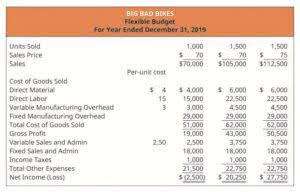
Providing upfront estimates can significantly enhance client relationships for therapists offering services with variable costs or packages. Erroneous or inaccurate estimates can result in unpleasant experiences with your potential patients. As a therapist, you may be well-versed in guiding clients through their hurdles, but things can get challenging when it comes to the business side of your private practice. Accounting For Architects Prompt reconciliation of accounts receivable through manual or automated systems can ensure that these discrepancies are addressed.

Should Law Firms Use Cash Or Accrual Accounting?

Therapists can manage their entire practice—scheduling, client notes, billing, and payments—from a single platform, eliminating the need to juggle multiple platforms. Its user-friendly bookkeeping for therapists interface and HIPAA-compliant design ensure that therapists can manage their finances securely and efficiently while maintaining focus on client care. The platform’s reporting tools allow therapists to track income, expenses, and client balances. These financial insights help therapists monitor their practice’s financial health and prepare for tax season.
Solutions
- The main draw of Wave is that its basic accounting services, including invoicing, are completely free—perfect for therapists looking to keep costs low while managing essential financial tasks.
- Luminello integrates well with credit card processing systems and accounting software like QuickBooks, making the transition to digital billing smoother for practices.
- Sage is known for its customizable workflows and flexibility, making it ideal for practices with unique needs or growing teams.
- Running a successful therapy practice involves many moving parts, and accounting is a crucial one.
- If your budget does not allow for an additional $30-$60 per month expense for a QBO subscription, consider the alternative software mentioned above.
- Therapists can ensure this by utilizing software that streamlines the process through automated billing.
With integrations like Stripe and PayPal, as well as the ability to connect directly to bank accounts, QuickBooks Online ensures real-time updates, reducing the chances of errors and saving time. Detailed reporting and budgeting features empower therapists to make informed financial decisions, set goals, and grow their practice with confidence. Symptom tracking apps collect data on users’ symptoms, either passively or through user input. They help both clients and therapists monitor changes over time, providing insights into triggers and patterns. This data can be invaluable during therapy sessions, offering a clearer picture of a client’s progress and areas that need attention. An ideal therapy notes software integrates well with EHRs, accounting platforms, telehealth systems, and scheduling tools—reducing the need to juggle multiple applications.
What is the best bookkeeping tool for small businesses?
- Tax laws change frequently, so professional guidance helps optimize savings.
- ZarMoney’s Profit & Loss feature clearly explains your business’s profitability, a crucial aspect of any therapy practice.
- Many are free or charge a nominal fee, making mental health support accessible to a broader audience.
- If a furniture company can benefit from accounting software, so can you as a therapist.
- The tool assists therapists in managing their practice remotely while providing secure video conferencing options for sessions, aligning it well with the requirements of telehealth.
- By automating note-taking, MentalHappy allows therapists to focus more on patient care rather than paperwork.
Professionals end up focusing too much on pathology instead of progress and solutions. Platforms like QuickBooks, FreshBooks, or Wave simplify tax tracking, automate categorization, and generate financial reports. In this guide, we’ll cover essential tax deductions for therapists and how to ensure you’re taking full advantage of these benefits.
Reduce burnout, improve patient care.

The first step in paying yourself involves setting an appropriate salary that reflects both your budget and industry standards. Typically, as private practice owners, you will need to consider your overhead, personal financial needs, and the economic state of your practice. normal balance Establishing a baseline salary helps in maintaining a balanced personal and professional cash flow. ZarMoney’s advanced accounting features, affordable prices, and insightful time tracking capabilities make it an excellent choice for therapists.